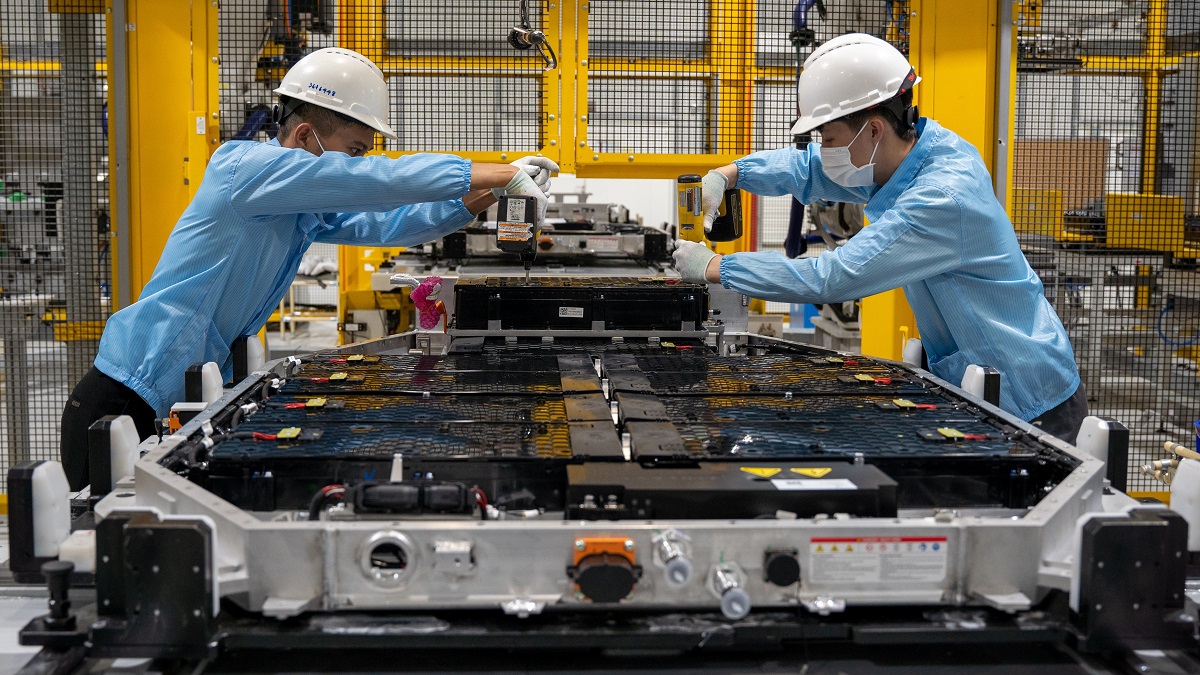An UNCTAD report on critical mineral trade flows in electric car battery value chains reveals market concentration and high value addition, offering opportunities for mineral-rich developing nations.
© Shutterstock/NamLong Nguyen | Workers in an electric vehicle battery factory in Haiphong, Viet Nam.
As the COP28 climate summit unfolds, an UNCTAD report sharpens the focus on trade in critical minerals that are essential for clean energy technologies.
It examines trade flows of lithium, cobalt and graphite through global value chains for electric vehicle (EV) batteries, highlighting opportunities and challenges for mineral-rich developing countries.
In a net-zero emissions scenario, demand for these minerals is expected to surge – for example, 454% for lithium and 115% for cobalt from 2022 to 2030.
Developing countries, especially in Africa, which boasts 19% of global mineral reserves needed for EVs, stand to benefit from the green boom if they can process the minerals locally.
The energy transition is an opportunity for mineral-rich developing countries to strengthen their emerging industries and bolster their position in global value chains, UNCTAD Secretary-General Rebeca Grynspan said at a COP28 event on critical minerals and the energy transition.
A cobalt success story
The report’s analysis of trade dynamics in EV supply chains highlights the significant value added at each stage of processing, as the minerals are extracted and turned into batteries and other components.
It spotlights the Democratic Republic of Congo's success in adding value to its cobalt.
By locally processing and refining the mineral, the African nation raised its unit price in 2022 from $5.8 per kilogram at extraction to $16.2 per kilogram after processing. This move up the value chain resulted in the country exporting $6 billion in processed cobalt last year compared with $167 million in raw cobalt ores.
Combatting commodity dependence
For countries historically reliant on raw material exports, like the Democratic Republic of Congo, adding value locally is vital for economic resilience.
Ms. Grynspan said it’s also essential to ensure that the soaring demand for critical minerals doesn’t further entrench these nations’ commodity dependence.
Such dependence leaves them vulnerable to market price fluctuations and global crises, such as the COVID-19 pandemic. It’s also linked to lower socioeconomic development. In 2021, 29 out of the 32 nations the UN classified as having low human development were commodity dependent.
Reducing market concentration
Moreover, enhancing processing capabilities in developing economies can help diversify global supply sources.
The UNCTAD report highlights the market concentration at various stages in EV battery value chains and the associated risks of supply disruptions, price volatility and geopolitical tensions.
It points out, for example, that trade in the manufacturing stages of cobalt is dominated by members of the Organisation of Economic Cooperation and Development (OECD). No country from Africa or Latin America is a major participant in the trade of manufacturing cathodes or battery materials.
“Countries that dominate these stages wield considerable influence over the entire EV market,” the report says.
Need for better mining contracts and access to technology
At the COP28 event, Ms. Grynspan highlighted the need for more sustainable and transparent mining contracts in developing countries.
Better mining contracts and exploration licences for critical minerals could help strengthen domestic industries, enabling local firms to design, procure, manufacture and supply the necessary EV battery components.
She also underscored the pivotal role of global support in providing affordable and sufficient investment and access to the technologies developing countries need to add value to their critical mineral exports.

